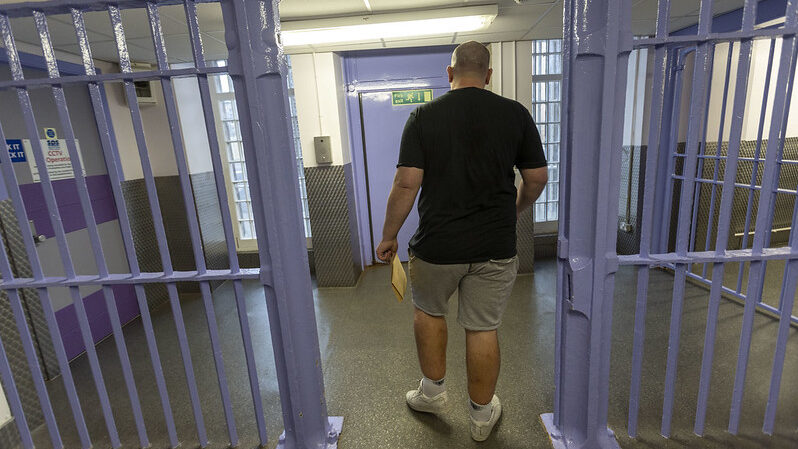The report exposes failings at the heart of the Welsh prison system, lead author Dr Robert Jones warned.
Wales has the highest imprisonment rate in western Europe, at 151 inmates per 100,000 people.
“These latest findings present a depressing picture of the criminal justice system in Wales,” he said. “As it recovers from the Covid-19 pandemic, we see the continuation and return of a persistent set of problems. There are already major concerns that rising prisoner numbers will exacerbate the situation further.”
Why do so many prisoners fall into homelessness?
Many people lose their housing when they enter prison. Upon release, secure accommodation can be hard to regain. Private landlords may refuse ex-offenders a tenancy, while social housing is massively oversubscribed.
With nowhere else to go, people leaving prison run the risk of turning back to crime to avoid homelessness. The MOJ said earlier this year that evidence shows offenders in stable accommodation are 50% less likely to commit further crimes.
The cycle of rough sleeping is difficult to break. A survey carried out by the MOJ in 2012 found that more than three quarters of prisoners (79%) who reported being homeless prior to entering custody were re-convicted within the first 12 months after release, compared to less than half (47%) of prisoners with some form of accommodation prior to entering custody.
Advertising helps fund Big Issue’s mission to end poverty
To tackle the problem, the government needs to prioritise former prisoners on accommodation waiting lists, Dr Jones urged.
“For many, the problem of prisoner homelessness is rooted in the decision taken by the Welsh Government to remove prisoners from the list of those who were once given automatic ‘priority need’ status for temporary accommodation,” he said.
“Reinstating this policy would go a considerable way to tackling the problems facing Welsh prison leavers.”
The government also needs to engage more seriously with an “over-reliance” on imprisonment, Dr Jones adds.
An MOJ spokesperson said: “The rise in the figures is a result of changes to the way we record this data.
“But we know stable housing helps ex-offenders stay on the straight and narrow which is why we’re investing millions to provide temporary accommodation for those at risk of becoming homeless on release – preventing them from falling back into a life of crime and keeping the public safe.”
Advertising helps fund Big Issue’s mission to end poverty
The report shows that one in five (21%) of all women sentenced to immediate custody at courts in Wales in 2022 were handed sentences of one month or less. In these cases, the report authors suggest alternatives to imprisonment should be considered.
The UK government has initiated some measures to deal with the issue, such as banning Friday releases. Prisoners released at the end of the working week had just a few hours to secure a bed for the night, while many essential support and mental health services close over the weekend.
Speaking to the House of Lords earlier this year, Big Issue founder John Bird backed the measure.
“By removing the barriers that a Friday release can bring, we can ensure that custody-leavers have a better chance to access the support they need to reintegrate into the community so that victims and the public are protected.”
Do you have a story to tell or opinions to share about this? We want to hear from you. Get in touch and tell us more.









